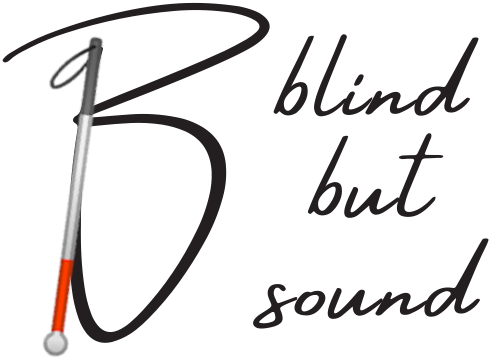Hello lovely people,
So, in my last blog I briefly mentioned Charles Bonnet Syndrome. This is something I have developed since losing my sight and is a condition that creates visual hallucinations which are created by the brain.
Dr Dominic Fitch, the UK’s lead researcher into CBS, describes it as the retina sending a constant stream of impulses to the visual parts of the brain. As the brain is over stimulated, it sends more impulses when there is no or little sight, which then causes the hallucinations.
The parts of the brain that are stimulated determine the kind of hallucinations you may see. For example, if it’s the colour centre that’s affected, your hallucinations will be of colour or if it’s the ability to recognize faces, the hallucinations will be of faces. If the hallucinations aren’t purely visual and if other senses are involved, such as hearing, smell or touch, then it is not CBS.
Sadly, there isn’t much information available for CBS. When I first started to experience the hallucinations, I was very scared and I thought it may have been linked to my brain, brought on by the stress and shock of losing my sight. It wasn’t something I expected, and I wasn’t aware that it was quite common in my situation. This really shocked me because I have suffered with eye problems throughout my life, yet this was something I hadn’t experienced in the past. I was quite taken aback by the lack of knowledge of the health professionals when it came to the diagnosis. My eye doctors were not very empathetic, and my GP didn’t appear to have much knowledge on the subject either. I was offered anti-depressants, but this wasn’t an option for me.
So, I made it my mission to find alternatives and I found that meditation really helped me. There are many herbal alternatives also available, CBD oil being one, although there is currently no evidence to prove its success.
I have found a few exercises that do help:
- Stand up if in a sitting position or sit down if in a standing position
- Clapping your hands
- Moving your head from side to side and rolling your neck
- Shining a touch under the chin up to the bottom of your eyes.
- Walking around
- Looking with just your eyes from right to left then up and down
- Staring straight at the hallucination
There are many more coping strategies listed on Esme’s Umbrella, an information site that can point you in the direction of help. You can also access Dr Dominic Fitch’s research, and there are support room numbers on there that you can contact. The main one being in association with Ring.
Judith has been doing an amazing job so far and has truly started to create awareness for CBS. Esme’s support rooms have also started to pop up around the UK, you can find these on her website. If there isn’t one local to you, get in touch with your local sight awareness charity and find out if they have one nearby or are willing to start one.
My CBS journey is just beginning. It’s now been nine months since I lost my sight and although the hallucinations are getting progressively worse, I am coming to terms with them. Now that I have a better understanding of CBS and why it is happening, I have found myself coping a lot better. Don’t get me wrong, sometimes it is so difficult and I long for just blackness, but it is a part of me now and I know it will ease as times goes on. There are many different types of experiences, mine are mainly colourful animated images. These can be anything from shapes, cartoon characters to Picasso style faces, scary at times. Some people can experience objects in their paths, some can experience seeing people stood in a room with them. People have also reported seeing double decker busses in their houses and spiders crawling over their bodies. These can all be frightening if you don’t know what they are. Hopefully, as the research continues, there will be more help available. In the meantime, I will continue with my meditation, as this helps me the most. I find connecting with myself and being at peace helps me mentally with acknowledging the hallucinations and accepting them.
CBS can affect anyone with any eye condition. It affects over 50% of people with sight loss, even from just a 20% loss. So please, if you have a member of your family or friend who has experienced sight loss at any age, and they seem distant at times, scared and withdrawn, maybe ask if they have heard of Charles Bonnet Syndrome. If they are seeing anything that they think isn’t there, then they can get the help they need. Don’t let them suffer in silence.
We need to make as much noise as we can about CBS as it needs more awareness and education so we can help those in need.
Thank you for reading and see you soon
Sending love and light,
Nina x


 using WordPress and
using WordPress and
Comments are closed